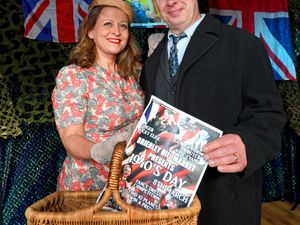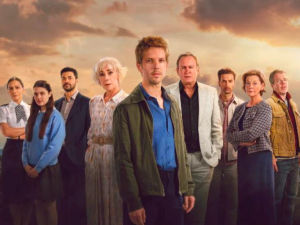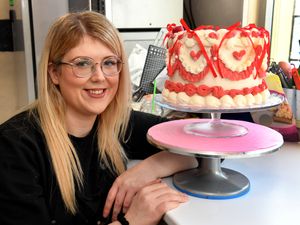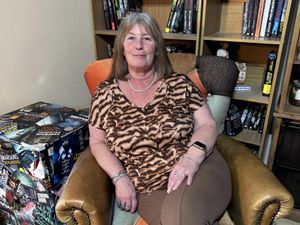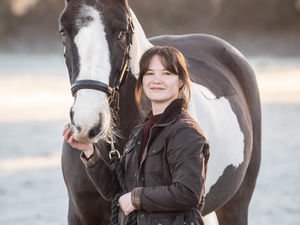Michael Parkinson: Retire? It never enters my mind
He’s interviewed the greatest stars of our time and became our finest chat show host. Now, at the age of 82, Parky’s hitting the road again. . .
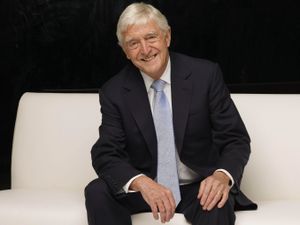
It’s Parky. Sir Michael. The Doyen of the Chat Show. The Don of the One-on-One. The Uber Interviewer who met and talked to the greatest of them all in a glittering 36-year TV career, during which time he became the greatest British talk show host of them all.
He interviewed more than 2,000 of the world’s biggest celebrities – Rod Hull and Emu and Meg Ryan were the worst – Fred Astaire, Orson Welles, Sir Alec Guinness, Sir Paul McCartney, Muhammad Ali, George Michael, Madonna, John Cleese and Mel Gibson were among the best. The only ones that got away were Frank Sinatra and Sir Donald Bradman, while the most remarkable interviewee of all was the great boxer Muhammad Ali.
Though Parky called time on his TV chat show, he’s devoted his post-TV career to writing – he’s a serial best-seller – and occasional in-person shows, like his date at Birmingham’s Symphony Hall on November 27.
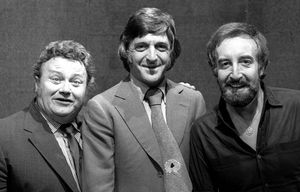
He will be in conversation with his son Mike, showing highlights from the Parkinson archive. Fans will get a unique opportunity to get an intimate, entertaining and informative look at his remarkable journey from a pit village in Yorkshire to the top of those famous stairs whilst reliving the best moments from a show that for many defined their Saturday night.
And so, when we caught up with Sir Michael, it seemed only right and proper to follow his classic question-and-answer format. We didn’t have the famous stairs, the BBC big band nor the celebrity musical guest. But those weren’t necessary. At 82, he remains a fascinating, erudite and compelling man.
So, to begin with, Sir Michael, please could you tell us what to expect from your evening at Symphony Hall?
“It’s a two-hour romp through my life and career in conversation with my son Mike with the help of classic clips form my archive. When we first devised the show it was just me on stage but as I age gracefully I have decided that I need some help in the form of an interviewer and Mike was the obvious choice. Apart from being my youngest son, which helps if he gets too cheeky, he has been my long term producer and runs my production company, which means that he probably knows more about me and my career than I do. It also helps that as an interviewer he proves the adage that the apples does not fall far from the tree.
“The show charts the improbable journey that I have taken from a South Yorkshire Mining village to the top of those famous stairs. It is full of reminiscences, anecdotes but also raises important questions about how our society has change and in particular the way the nature of television and fame has changed.
“The clips are of course wonderful. All the main players are there, Ali, Billy Connolly, Dame Edna and the superstars from the Golden Era of Hollywood. But there are also real hidden gems from people who we’re not famous in the traditional sense but just have a facility for words that made them God’s Gift to a talk show host at a time when we could allow the guests time to breathe. I hope the audience has as much fun as I do perfoming it.”
Among your many famous guests was the greatest boxer of all time, Muhammed Ali. You wrote a memoir last year, which was exceptional. Please could you reflect on those interviews with him and also his genius in the ring.
“I often say that I interviewed Muhammad Ali four times and lost every one. You couldn’t interview him, you just asked your first question and then held on for dear life as he took you on a ride which revealed the many sides of his kaleidoscopic character. He was – as a boxer – the greatest there has ever been and that was even with his prime years as a fighter taken from him by his decision to refuse to fight in the Vietnam War. He left an indelible mark on the history of boxing and his fights against Frasier and Foreman remain to this day spectacles of skill, courage and sustained brutality.
“The interviews never went the way I wanted them to because he never wanted you to get inside him. He treated you as he would an opponent in the ring. He would deflect, dance and divert you whenever he felt you were coming too close and instead used the interviews as a platform to expound his deeply held, and in many ways deeply unpleasant, belief system about race and civil rights informed by the Nation of Islam.
“When he died I was inundated with requests from news agencies all over the world to share my thoughts on him. At the end of a day of interviews I was left somewhat bemused because I realised that despite spending hours in the man’s company I never really got to know him. That was the main reason I decided, with the help of my son Mike, to take journey into the heart of the man. Muhammad Ali: A Memoir does not profess to be the definitive book on him but is more a reflection on my four meetings and a personal take on a man that I respected, admired and wondered at but never really knew.”
The style of TV interviews has changed considerably. While once it was about engaging with those who were remarkable, researching well and listening to their responses, all too frequently modern interviews seem to be about the host telling jokes or being the principal entertainer. Again, please could you reflect on the changes to talk shows over your career?
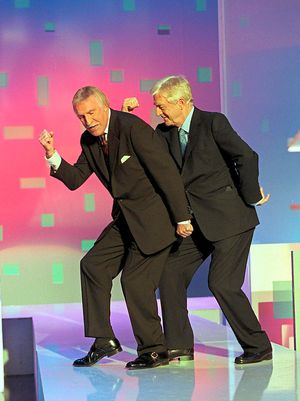
“The talk show is the most enduring format on television because it is merely an updated version of what we used to do round the campfire chewing a hunk of mammoth! It’s about telling stories and sharing thoughts and at its best it is riveting. It is beloved of TV executives because it is cheap and endlessly returnable.
“Like many things in television, the Americans invented it and they went down the route of the host as comedic compere, placed firmly at the centre of the piece with the guests as amusing interludes. For a time in the 60s we imported this format but it never sat that easily with the British public so in the 70s we started to create our own indigenous talk shows like Parkinson and Russell Harty. These were more journalistic in tone, with the guest placed at the centre and a real attempt to get to the heart of what made these talented people tick but always with one eye on entertainment.
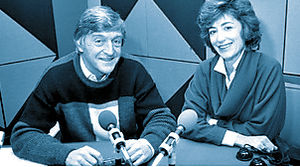
“I call it ‘tap dancing whilst interviewing’. It was a great time to do a talk show because it was before PR teams strangled the humanity out of stars and the internet made every possible interesting fact about anyone available with a click of a button. It was also an easier time to make television. There were only three channels, the BBC ruled the airwaves and any creative person be they in front of the camera or behind were given licence, which is why I could one week interview Jimmy Cagney and the next week WH Auden.
“I fear that I sound like an reactionary old fart when I say that I wish we had at least one talk show nowadays that tried to do what I did but sadly the taste is solely for comedy talkshows. That’s not to say they are not good and, in the case of Graham Norton and Jonathan Ross very good, but I just think there is an audience out there that craves a different diet of talk from what is being served up.”
Your background was in local newspapers, though they too have changed considerably during your lifetime with the advent of a digital age. Please could you share a few memories of your earliest jobs and also offer your views on the changing face of print newspapers, set against the importance of the internet?
“I was around in the golden period of newspapers when they ruled the media landscape and were awash with money. They were glamorous places to work full of extraordinary, talented figures. It was a great time to be a journalist as long as you had the liver of an elephant.
“My route into journalism was made easier by the fact that despite leaving school with only two O Levels I could walk into my local newspaper and become indentured to an experienced journalist who showed me the ropes. My earliest memory was being charged with cycling round the nest of pit villages in the area collecting the sports results. I did 20 miles a day, earned the moniker of Mike the Bike and to this day have legs like Bradley Wiggins.
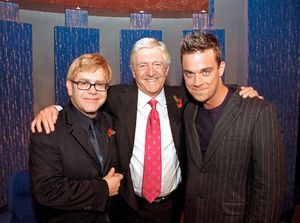
“When I am asked by young people how to get into journalism I am stumped for an answer because the business has changed so much that I don’t recognise it and consequently wouldn’t know how to go about getting a job. The internet has been a game-changer and has, in my opinion, thrown up some disturbing developments in how news in disseminated and assimilated. Newspapers are facing the same challenge that the music industry faced when downloads replaced physical records. How they react and adapt will be very interesting to see.”
More than 2,000 celebrities have shared a show with you: would it be possible to pick five or 10 with whom you connected particularly well, with a few thoughts on each?
“Billy Connolly appeared more than 12 times and became a friend whilst proving he’s the greatest comic of his generation. He’s unwell now which is such a shame and my thoughts are always with him.
“Dr Jacob Bronowski was a scientist and author of that seminal work on the history of humanity The Ascent of Man. I have never met or interviewed a man who had such an agile and insightful mind allied to an ability to express himself so eloquently.
“Sir David Attenborough is one of the most important broadcasters of this and indeed any generation. A born teacher, his work will be enjoyed for as long as people watch television.
“Lauren Bacall was another. I dreamed of setting up home with her in Barnsley when I was kid watching her in the Rock Cinema. Who’d have thought I would’ve interviewed her three times and even got a kiss.
“And then Dame Edna Everage. Another for whom my heart skips a beat. I think that in the Dame, Barry Humphries created one of the great comic characters. The genius of Barry is that it is not a scripted impersonation but a fully formed incarnation.”
Things mostly went pretty well, though, as you observed in your autobiography, it was sometimes the difficult situations that were notable too. Such interviews as Rod Hull and Emu and the challenging Meg Ryan are examples. What perspective do you have on those and what, if anything, could you have done differently?
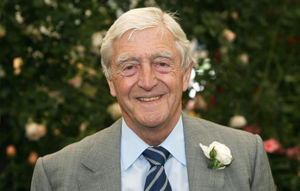
“I knew what to expect with Rod. That was his act. I went with it knowing that the audience love it when the host gets his comeuppance. Meg was different. An interview is a collaborative process. If one side doesn’t want to do it then it does not work. For whatever reason she didn’t want to be interviewed and in retrospect, for both our sakes, I should’ve ended the interview when she said ‘just wrap it up’.”
Ten years ago, you announced your retirement. You’ve been busy since. Have you enjoyed the past decade and what have been the most enjoyable aspects?
“I’m lucky in that my job is my hobby so the idea of retirement never enters my mind. Writing the autobiography was tough but rewarding and also made good a promise I made many moons ago to my long-term publisher and friend Roddy Bloomfield. I’ve also really enjoyed doing the live theatre show and developing another one which will concentrate on my love of music, which we are touring next year.”
Your wife, Mary, has been a great rock and support throughout and I wonder if you might reflect a little on the importance of family and the stability and joy it brings?
“I’m lucky to have met her. She is an extraordinary women with a streak of Irish madness and a far better person than I am. She’s kept me on the straight and narrow, built me up when I needed it, knocked me down when I’ve got too uppity. I couldn’t have achieved what I have without her and on top of that she’s given me three great boys. I don’t know how she put up with me for more than 57 years but I’m glad she has.”

